
views
Making the Customer Feel Welcomed

Greet the customer with enthusiasm. When a customer enters your dealership, approach them with confidence, warmth and kindness. First impression is so important and the customer needs to feel like you are being authentic with them. Meet the customer in a way that doesn't feel overwhelming or overbearing, but in a way that shows you are there to help. The upfront approach -- walk to the customers, greet them with a firm handshake and smile, and begin asking questions about what kind of car they are looking for. The hands off approach -- walk up to a potential customer, shake hands firmly and offer a quick greeting. Then, hand them your business card and say "Hi my name is X, here are my contact details. My desk is over there, so take a look around and when you've found something you like or have questions come over and I can assist you. Also, if another salesperson approaches you, inform them I am assisting you." (The problem with this approach is your customer won't likely feel any attachment to you, and so they may move on to someone else or leave the dealership with no information gained.)

Create small talk. Although this can be frustrating for some customers who just want to "get in and get out," striking up a conversation with customers can help build rapport and help them feel more comfortable trusting you as their salesman. One of the biggest influences in building your customers' trust is showing them that you're not just interested in selling them a car. Show them that you want to build a relationship with them. Ask them about their family, job, interests, etc. Find something in common with them and build trust through that connection. People love talking about themselves, and they feel respected when they have a chance to be heard. Be so likable that your customers refer you to their friends and family.

Exhibit positive body language. When talking to customers, make eye contact with them so they know that you are really interested in what they have to say. Using body language that is friendly and welcoming will also make your customer feel more at ease. Be authentic. Don't just put on a happy face to make a sale. Actually care about your customers' needs and sympathize with them. Customers will likely be able to tell if you dislike the part of your job that involves interacting with customers, or if you're trying to speed them through "meet and greet" so you can start showing them cars. Be patient and don't force any decision on your customer.

Ask good questions. After you greet customers, make sure you give them the opportunity to share what they are looking for, or to share that they aren't sure what they want and so they just need time to look around. Refrain from "yes" or " no" or broad questions if you don't want your customer to easily walk away. By asking "Can I help you today?" or "How can I help you today?" a customer can easily respond with "I'm just looking, thanks" and then you've likely lost your chance at selling a car. Try asking more directed questions like "Are you looking for a sedan or SUV today?" or "what type of vehicle can I help you find today?" Customers may still be disinterested in your help, but you have a lot better chance of keeping their attention and it will be much less awkward if you follow them around the showroom. This also allows customers to share their thoughts on the type of car they are looking for and allows you to match the needs of your customer with one of your vehicles.
Working with Your Customer
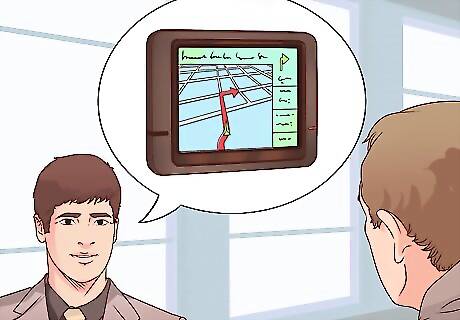
Find out the particulars. After you've figured out what type of car your customers are looking for, narrow down the search by asking them specifics about their budget, the space they require, any special features they may want. Part of your job may be to sell them those extra features like the navigation system, heated and cooled seats, blind spot detection, extended warranty plan, etc. Selling these extra features to your customers will be much easier if you learn what they need and what they want.
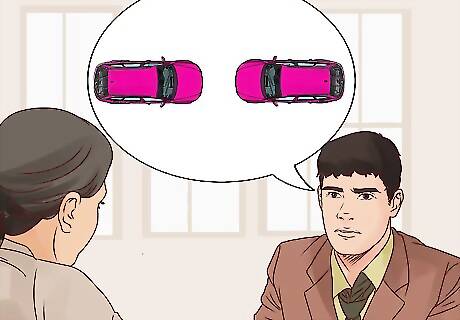
Talk exchanges. Ask customers if they have a vehicle they wish to part exchange. It's good to do this before you begin showing them new cars, because you can figure out the customers' buying motive, and will also be able to see what they feel is lacking in old car. It also allows the customer to relax when they begin looking at new cars, because they know their old car is already taken care of. Make it clear that the sales manager is the one who will appraise their car. Explain to them that the manager's job is to get them the best possible deal for their car. After looking over the vehicle, noting any damage, and asking any questions you may have about it, take their appraisal form into your sales managers office. It should take him only a minute or so to come up with his initial offer, but inform the customer it will take about 10 minutes and use that time to begin looking at new cars.

Discuss pricing and budgets. As you begin looking at new cars, ask customers what they are hoping to spend. You want to offer your customer the best deal while also making sure you can get the most out of the sale as well. Ask customers what their desired monthly payment is, and work on lowering the monthly payment for your customer while extending the loan period. Some customers will come in and refuse to talk monthly payments. They may only want to talk about the total price of the car. In that case, if you are unable to lower the price of the car in order to complete the sale, offer them extra features such as 12 months road tax at no extra cost or other features that you can add that will make the price seem more fair for the customer but won't cost you much.

Take your customer for a test drive in a new car. Tests drives are crucial for a sale, because customers need to feel comfortable in the vehicle they buy. As you sit in the passenger seat, ask customers how they like certain aspects of the car and if the car feels different from their previous vehicle. Ask them if there are things they don't like about the functionality or feel of the car and then use those comments to find another car more fit for them. If your customers seem pleased with the car, ask them "Is this the car for you?" and if the answer is yes, go on to seal the deal! If your customer still isn't sure, try suggesting other cars you think would be a good fit.
Sealing the Deal
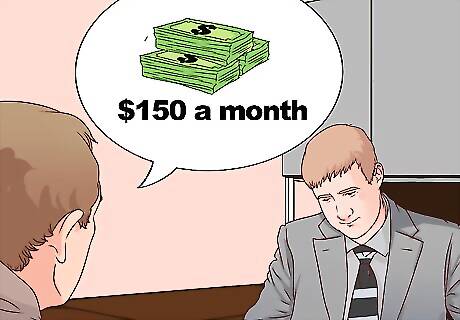
Discuss the price with your manager. After your customer has picked out a car and you've come to a compromise on the price, bring the price to your sales manager at an even lower price. For example, if your customer says they can pay $200 a month, tell your manager $150 a month. This will give you more credibility with your customer and at the end of the day the important thing is that you've made a sale and have a pleased customer that may refer you to friends or will give you a high rating on your C.S.I (customer satisfaction index).
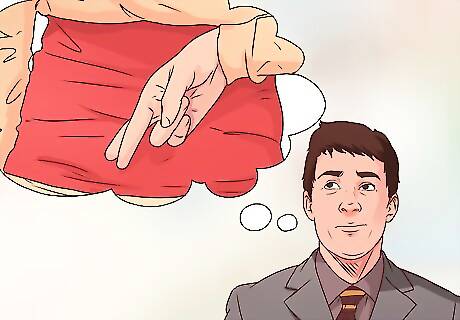
Don't let your customer lie to you. Often times your customers will bring in a white lie about what they can afford, or what the dealership down the street is planning on offering them for their trade-in. Overcome these objections by being understanding but persistent. Explain to them that your appraisal of their car is accurate and a good deal. Customers looking for a trade-in often times will value their car through Kelly Blue Book, but that value is only accurate if they can sell their car at full Kelly Blue Book retail. Every month a car loses 2% of its value, and then you have to attach all the expenses to it that make it ready to sell like tires, brakes, the noise in the back, that light that won't turn on, the safety check, and reconditioning. Also, if another customer comes in and wants to offer less for the car than what it is priced at, the dealership will likely take it because they want to make the sale, thus the customer's car is likely to bring in less than what they believe it will. Explaining this to your customers is important so they understand that you aren't swindling them in price.
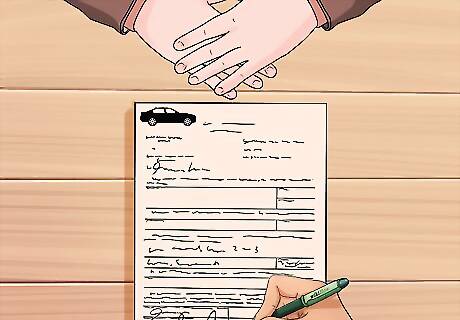
Close the sale. Now that you have discussed pricing and gotten a definite number from your manager, it's time to complete the sale. Sign the paperwork, arrange a collection date, and always stay in contact with the customer to prevent any problems.
Standing Out Among Other Salesmen

Walk the floor each morning. In order to compete with other salesman and to show your customers you are genuinely interested in the cars you are selling them, know what's on your showroom floor. Learn the cars on hand, any specials your dealership is offering, cars that may be good for people with bad credit, and anything else that could be beneficial to communicate to your customer.

Be familiar with competitor's products. Study the cars other dealerships are selling, and learn why it would be more beneficial for your customer to buy from your dealership. Know every model and option your company offers as well as those of your competitors. This will take a lot of studying, but it will be worth it because you'll know exactly why your product is better and won't have to make something up and potentially lie to your customer.
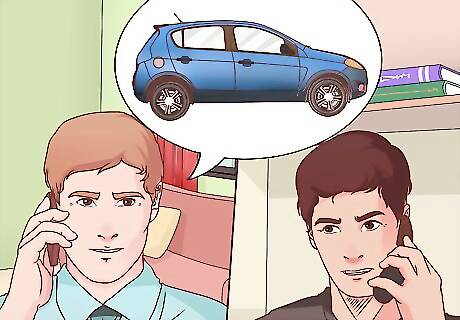
Follow up with potential customers. After you meet a customer and get to know them, write down all of the information you learned in your CRM (customer relationship management). Then you'll know the best time and way to reach them. You can continue to do this until you've reached them or until they ask you to stop contacting them. Some people may get frustrated if you continue to call them, but look at it this way, those people probably weren't going to buy from you anyways so you haven't lost anything.
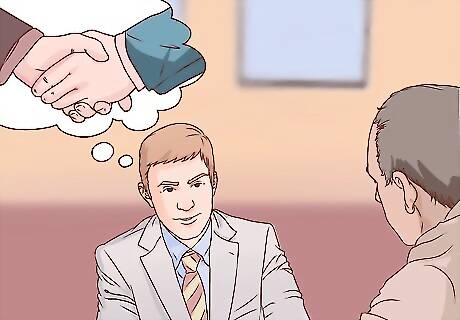
Make friends with your sales managers. These are the people that are ultimately going to help you seal the deal and they can also offer you "house deals," which are about a third of the deals that take place at a dealership. If you're friendly with your manager and they trust you, they'll be able to put you on deals that are generated from the internet or from people at the dealership who know people who want to buy cars. House deals consist of "phone-ups," customers who call in on the phone, or "internet leads," customers who visited a website and are interested in buying a car. These are called house deals because the dealership owns them until the manager divides them up between salesmen. Sales managers play a big part in your success at the dealership. If you haven't built any relationship with them and they decide they don't like you they can starve you of deals and leave you empty handed, or give you such insufficient help that you eventually quit.










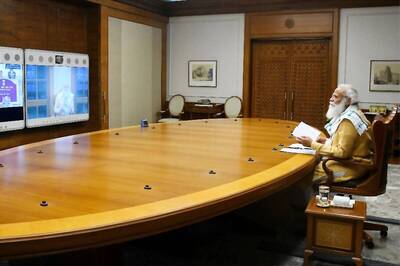


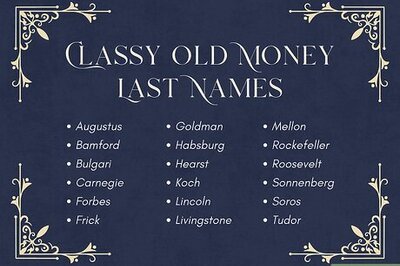
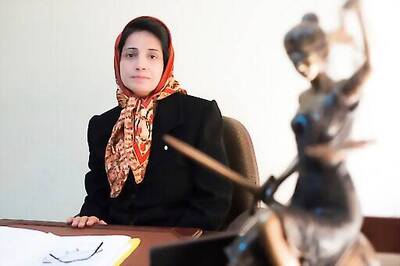


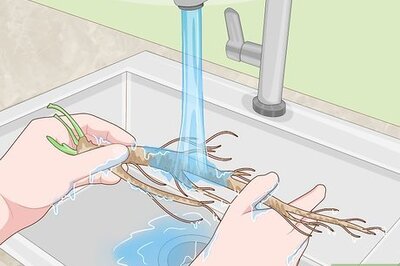

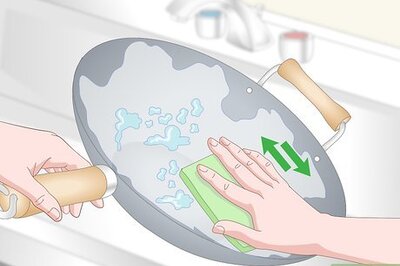
Comments
0 comment